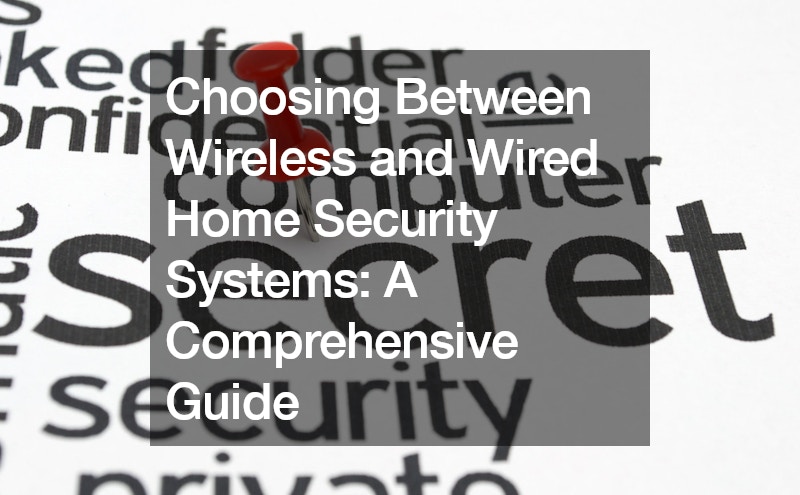When it comes to safeguarding your home, selecting the right security system is paramount. The decision often boils down to choosing between wireless and wired home security systems, each with its own set of benefits and drawbacks.
Wireless systems offer ease of installation, making them popular among homeowners seeking quick setup and minimal wiring. With wireless cameras, users can conveniently control and monitor their property via mobile apps, providing flexibility and accessibility.
However, these systems may have limitations in terms of video quality and reliability compared to their wired counterparts.
On the other hand, wired home security systems are lauded for their superior video quality and robustness. With wired cameras, users can enjoy uninterrupted recording and greater clarity, particularly with advanced features like 4K resolution. Additionally, wired systems often offer local storage options, eliminating the need for monthly cloud subscription fees.
Despite their advantages, wired systems require more extensive installation, involving the routing of cables and potential modifications to the property. However, once installed, wired systems provide a reliable and permanent solution for home security needs.
Considerations such as cost, smart home integration, and ease of use also play a crucial role in the decision-making process. While wireless systems may be more budget-friendly and offer seamless integration with smart home devices, wired systems provide long-term reliability and high-quality surveillance.
Ultimately, the choice between wireless and wired home security systems hinges on individual preferences, priorities, and budget constraints. By weighing the pros and cons of each option, homeowners can make an informed decision to protect their property and loved ones effectively.
.

